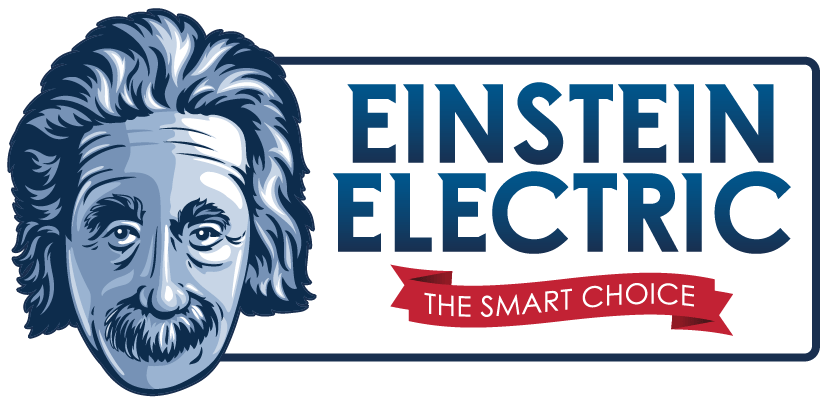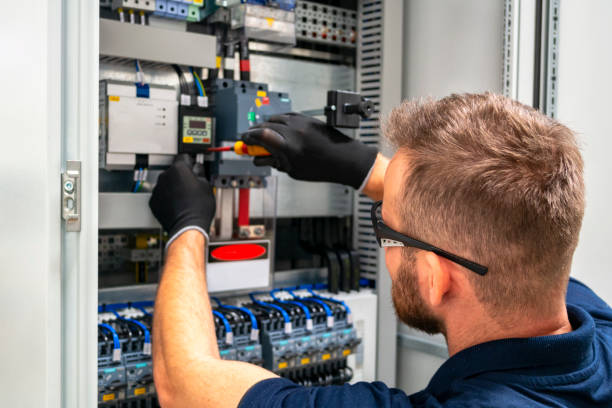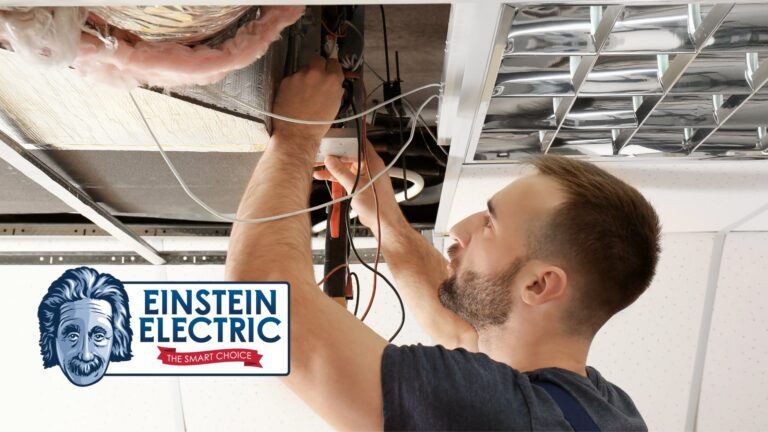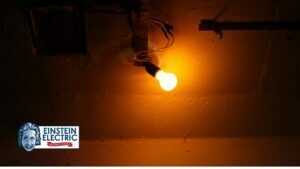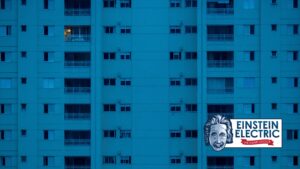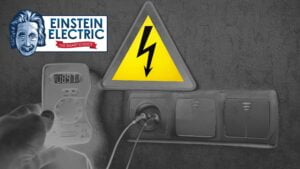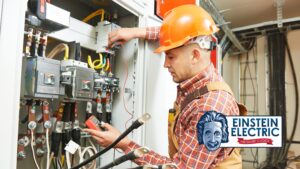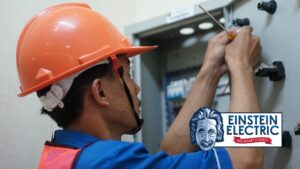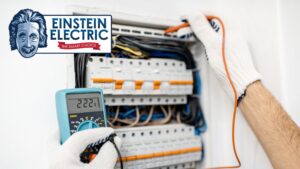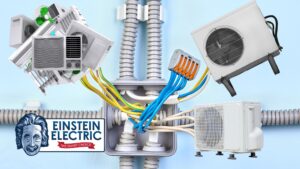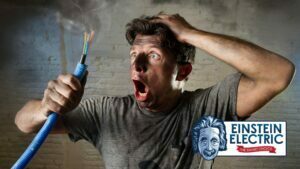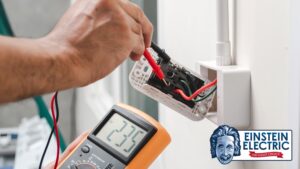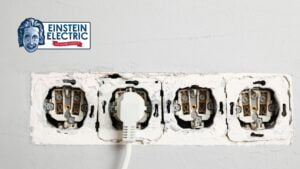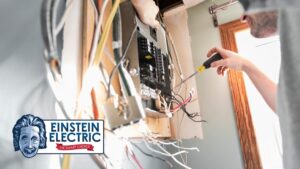Introduction
In our modern world, cooling systems are essential for maintaining comfortable environments, be it at home, in the office, or in industrial settings. These systems rely heavily on electrical components to function efficiently. However, the importance of regular electrical maintenance for cooling systems is often overlooked. In this blog post, we will delve into the reasons why electrical maintenance is crucial for keeping your cool, ensuring the longevity, energy efficiency, and optimal performance of cooling systems.
Ensuring Safe Operation
Safety should be a top priority when it comes to cooling systems, and electrical maintenance is crucial in achieving that goal. Faulty electrical components pose significant risks, including electrical shorts, overheating, and fires. Frayed wires or damaged connectors can lead to sparks or electrical arcing, potentially causing electrical malfunctions or even igniting flammable materials.
Regular inspections and preventive maintenance carried out by qualified electricians can help identify and rectify these issues before they escalate. These professionals have the expertise to assess the integrity of electrical connections, ensuring that they are secure and free from any damage. They can also conduct thermographic surveys to identify hotspots, indicating potential electrical problems.
Moreover, electrical maintenance ensures that cooling systems meet safety standards and regulations. Electricians can verify that the systems are correctly grounded, preventing the risk of electric shocks. They can also check for proper insulation, preventing accidental contact with live wires. By addressing these safety concerns, the risk of accidents and potential harm to individuals and property is significantly reduced.
Regular electrical maintenance is not only about fixing existing problems but also about preventing future issues. By identifying and addressing potential electrical hazards early on, the likelihood of system failures, disruptions, and costly repairs is minimized. Ultimately, investing in electrical maintenance for cooling systems helps create a safe and secure environment for everyone involved.
Enhancing Energy Efficiency
Enhancing energy efficiency is a significant benefit of regular electrical maintenance for cooling systems. By addressing factors that can impact performance, maintenance helps optimize the energy consumption of these systems.
One common issue that affects energy efficiency is the accumulation of dust and debris in cooling system components, such as air conditioning units. This buildup hinders airflow and forces the system to work harder to achieve the desired cooling effect. By regularly cleaning and maintaining condenser coils, fans, and filters, electrical maintenance prevents this obstruction, allowing the system to operate at its peak efficiency and reducing energy consumption.
Proper calibration of electrical components also contributes to energy efficiency. Thermostats and sensors that are not accurately calibrated can result in inaccurate temperature readings, leading to unnecessary energy usage. Electrical maintenance ensures that these components are calibrated correctly, enabling precise temperature control and avoiding excessive energy consumption.
Furthermore, electrical maintenance includes checking for any electrical inefficiencies, such as voltage irregularities or high electrical resistance. Identifying and rectifying these issues helps minimize energy loss and ensures that the electrical system is operating optimally.
By enhancing energy efficiency, regular electrical maintenance not only reduces energy consumption but also results in cost savings for cooling system operators. It promotes a more sustainable approach to cooling, reducing the environmental impact associated with excessive energy usage.
In conclusion, electrical maintenance plays a crucial role in optimizing the energy efficiency of cooling systems. By addressing factors such as dust accumulation, component calibration, and electrical inefficiencies, maintenance helps reduce energy consumption, lower operating costs, and promote environmental sustainability.
Extending Lifespan and Reliability
Extending the lifespan and reliability of cooling systems requires a comprehensive approach that includes electrical maintenance. Regular inspections and preventive maintenance are essential for identifying and addressing potential issues before they escalate into significant problems. By conducting thorough checks on electrical connections, measuring voltages and currents, and identifying areas of concern, electricians can proactively address issues that may cause system failures. This proactive approach significantly reduces the risk of unexpected breakdowns and costly repairs.
In addition to electrical inspections, maintenance also involves lubricating moving parts, checking motors, and monitoring refrigerant levels. Proper lubrication ensures smooth operation of mechanical components, reducing friction and minimizing wear and tear. Regular motor checks help detect any abnormalities or signs of deterioration, allowing for timely repairs or replacements. Monitoring refrigerant levels is vital to ensure optimum performance and prevent compressor damage.
By implementing a comprehensive electrical maintenance program, cooling systems can operate at their optimal efficiency for an extended period. Regular maintenance enhances the reliability of these systems, as potential issues are addressed early on, minimizing the chances of unexpected failures. Moreover, it maximizes the lifespan of the cooling equipment, protecting the initial investment and avoiding the need for premature replacements.
Electrical maintenance is crucial for extending the lifespan and improving the reliability of cooling systems. By conducting regular inspections, addressing potential issues, and ensuring proper functioning of all components, cooling systems can provide efficient and reliable cooling for an extended period.
Compliance with Manufacturer Guidelines
By conducting regular inspections and adhering to the manufacturer’s guidelines for electrical maintenance, potential issues can be identified and addressed promptly, preventing major system failures and costly repairs.
Compliance with manufacturer guidelines also ensures that the cooling system maintains its warranty coverage. Manufacturers often require regular maintenance and adherence to specific guidelines to honor warranties. Failing to comply with these requirements can result in the voiding of warranties, leaving the owner responsible for repair costs.
Furthermore, insurance coverage may also depend on compliance with manufacturer guidelines. Insurance policies often include provisions that require adherence to maintenance and safety standards recommended by the manufacturer. By following these guidelines, the owner can ensure that the cooling system remains eligible for insurance coverage in case of any unforeseen events or damages.
Optimal system performance is another crucial aspect of compliance with manufacturer guidelines. These guidelines are designed to ensure that the cooling system operates at its best efficiency and provides effective cooling. By following the recommended maintenance procedures and electrical requirements, the system can deliver the desired cooling output, saving energy and enhancing overall performance.
In conclusion, compliance with manufacturer guidelines for maintenance and electrical requirements is vital for cooling systems. It not only helps maintain warranties and insurance coverage but also ensures optimal system performance and reduces the risk of unexpected breakdowns. Adhering to these guidelines is essential for maximizing the lifespan and reliability of cooling systems while keeping them operating within their intended parameters.
Conclusion
The importance of regular electrical maintenance for cooling systems cannot be overstated. By adhering to manufacturer guidelines, you not only extend the lifespan and reliability of your system but also maintain warranty coverage and validate insurance. Compliance with these guidelines ensures optimal system performance, reduces the risk of unexpected breakdowns, and maximizes energy efficiency.
Engaging qualified professionals for electrical inspections, cleaning, and preventive maintenance is crucial. Their expertise and specialized tools enable them to identify and address potential issues before they escalate, ensuring the smooth and efficient operation of your cooling system.
By prioritizing electrical maintenance, you can enjoy a safe, comfortable, and energy-efficient environment while protecting your investment in cooling systems. Don’t overlook the significance of regular maintenance in prolonging the lifespan of your system and minimizing costly repairs.
So, make electrical maintenance a priority, follow manufacturer guidelines, and engage professionals who can provide the necessary expertise. By doing so, you can have peace of mind, knowing that your cooling system is in good hands and will continue to serve you reliably for years to come.
